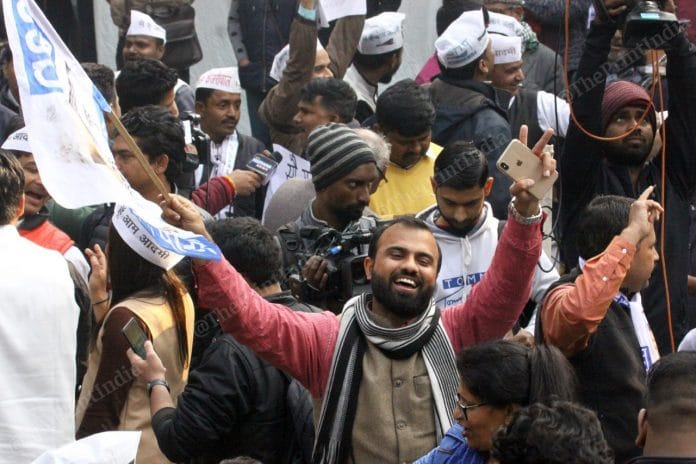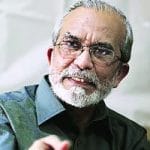Today’s Editorials
The Times of India: In ‘AAP landslide’, TOI writes that the mandate in Delhi signifies that governance is the new nationalism. BJP’s hypernationalism pitch failed to convince the educated, aspirational and cosmopolitan voters of the capital whose syncretic culture built over many years is a part of its identity, it notes. The lesson for the BJP is that it’s polarising strategy cannot work in Bengal where the assembly election is going to be held next, the daily suggests.
Hindustan Times: In ‘The meaning of AAP’s capital success’, HT analyses four outcomes of Arvind Kejriwal’s victory. BJP needs to differentiate between state and national elections, results should not be seen as the mandate against the party’s policies like Article 370 and CAA, Indian voters prefer centrists and BJP’s “geographical footprint continues to be limited to 13 states and 40% of the population”. The daily writes that the elections are not just a win for the people of Delhi who refused to be polarised, but for the people of the country as well.
The Indian Express: The Delhi election mandate is an affirmation of AAP’s welfarist political agenda trumping the hyper-nationalist narrative of the BJP, writes Express in ‘The Delhi Model’. It notes that it wasn’t an easy battle for AAP but its strongest asset was its leader Arvind Kejriwal under whose leadership the party had delivered most of its promises. Kejriwal’s “tactical smartness” in refusing to be drawn into the narrative of divisive politics is also responsible for the major victory, it writes.
The Hindu: AAP’s second consecutive victory is “not an electoral enchantment of a start-up, but an endorsement of its track record”, writes Hindu in ‘Winning formula’. However, to read Delhi results as a setback to Hindutva politics and a celebration of good governance will be a “misleading exaggeration”, it notes. It suggests that any effective opposition to the BJP will have to develop an alternative politics that centrestages people’s everyday concerns.
The Opinion Makers
Santosh Desai | Leading ad professional
The Times of India
Desai writes that Kejriwal’s return to power proves that a believable story, with evidence that substantiates it, is critical to hold power. “Kejriwal denied BJP the ammunition that it thrives on while keeping his story intact; BJP had no real argument to offer against his core pitch,” he states.
 The other Delhi is distant yet
The other Delhi is distant yet
Satish Deshpande | Sociology Professor, Delhi University
The Hindu
Deshpande argues that the Delhi election results have further highlighted the power difference between the central government and the state governments. He states that BJP’s defeat does not mean their “anti-minority” vendetta “backfired” but just that “they did not succeed in this place at this time”. Furthermore, he argues that AAP’s policy of “non-engagement” helped the party in this victory.
Suhas Palshikar | Chief editor of Studies in Indian Politics
The Indian Express
Palshikar argues that while the Aam Aadmi Party’s win in Delhi provides relief, it is important to question the party’s ideology, which is within the BJP’s framework. He states that while a straightforward understanding of the mandate dictates that the people of Delhi chose performance over animosity, in actuality, “Kejriwal’s tactical silence”, over issues like Shaheen Bagh and Article 370, helped him retain Delhi. Palshikar questions if this means that an alternative to BJP is now just “a softer copy of the BJP itself”.
 In AAP’s victory, a lesson in transformative politics
In AAP’s victory, a lesson in transformative politics
Manisha Priyam | Associate professor, National University for Educational Planning and Administration
Hindustan Times
AAP’s victory is transformative because it bridged the gap between rich and poor and developed the ethics of care, writes Priyam. She argues, “At the end, it was a focus on the life of the common man, woman and child that tilted the unequal battle between the Centre and this small state in favour of the AAP.”
 Politics is shifting to the centre-right. Delhi proves it
Politics is shifting to the centre-right. Delhi proves it
Rahul Verma | Fellow at the Centre for Policy Research
Hindustan Times
Verma explains that with Arvind Kejriwal’s return as chief minister, populist welfarism and a strong nationalist pitch in the new normal. “Recent opinion polls suggest that a significant number of voters who supported the AAP in this election endorse the BJP’s ideological viewpoint,” he argues.
 We need more political parties that address urban aspirations
We need more political parties that address urban aspirations
R. Jagannathan | Editorial director, ‘Swarajya’ magazine
Mint
Jagannathan views AAP’s sweeping victory in the Delhi election as a lesson that India needs “more urban parties so that states are forced to give metros and mini metros greater control of their resources to boost growth and investment”. He highlights this by mentioning Maharashtra CM Uddhav Thackeray, who chose to keep the urban development portfolio, rather than home or finance.
Shankar Acharya | Honorary professor, ICRIER and former chief economic adviser, GoI
Business Standard
Acharya expresses his disappointment with the Union Budget speech starting with Sitharaman’s failure to acknowledge the economic crisis in her “opening pages”, “fudging” of numbers and the “continuing lurch towards protectionism”. He does however, commend her for “not giving us even higher…[fiscal deficit] plans to propitiate the stimulus-wallahs.”
S. Murlidharan | Chennai-based chartered accountant
The Hindu Business Line
Murlidharan criticises the Finance Bill 2020’s proposition that an “e-appeal scheme be launched on the lines of e-assessment scheme.” He argues that appeals are “more adversarial” than assessments and require a dialogue. “E-appeals would reduce the appellate process to a questionnaire, if not a tick-box system”, he writes.
Najib Shah | Former chairman, Central board of Excise and Customs, GoI
The Economic Times
Shah expresses concern regarding the proposed Section 28DA in the Customs Act meant “to tighten imports under free and preferential trade agreements” given that rising claims of FTA benefits are starting to threaten the domestic industry. He recommends that the customs department be careful in exercising this power “more as an exception, and only in cases of misdeclaration and fraud”.
 Need to foreground science-based solutions
Need to foreground science-based solutions
Nisha Holla | Technology fellow, C-CAMP
Taslimaraf Sayed | CEO & Director, C-CAMP
The Financial Express

Holla and Sayed call for nationwide idea platforms to support entrepreneurs, start ups and innovators. They suggest looking towards the National Bio- Entrepreneurship Competition (NBEC) for inspiration and replicating the model in fields of “energy, defence, semiconductors, automobile design, and others where India must develop technological leadership to fuel industrial and economic growth.”
 What can we expect after this budget
What can we expect after this budget
Nirvikar Singh | Professor of Economics, University of California, Santa Cruz
The Financial Express
Singh finds the latest Union Budget “positive in its potential impacts on India’s economy” and examines various policy proposals from GST to income tax reforms to disinvestment for the long-run. He concludes, however, that these are “not a core part of the revenue-expenditure-borrowing accounting of the Budget” and warns of the “tendency to substitute moralising for designing incentive-compatible economic policies”.










